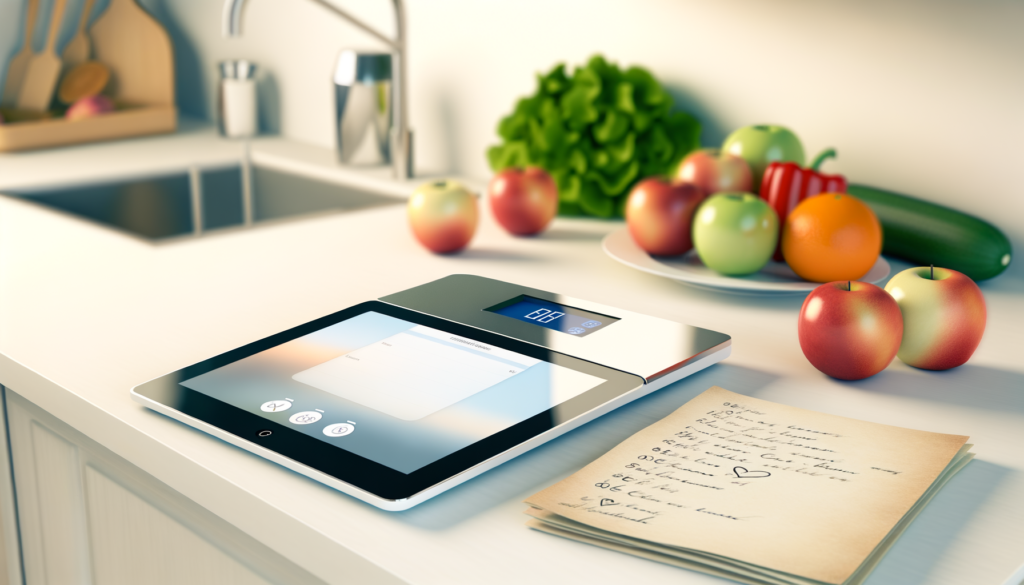Understanding the Complexities of IBS and the Role of Calorie Tracking
Managing Irritable Bowel Syndrome (IBS) is a multifaceted challenge that involves a deep understanding of the interplay between diet, gut health, and overall well-being. While dietary modifications are a cornerstone of IBS management, the role of calorie tracking can often be overlooked but is crucial for maintaining optimal digestive health.
The Impact of Diet on IBS Symptoms
Diet plays a pivotal role in the management of IBS symptoms. Studies have consistently shown that certain foods can trigger or exacerbate IBS symptoms, while others can provide relief. For instance, the low FODMAP diet, which involves reducing the intake of fermentable oligosaccharides, disaccharides, monosaccharides, and polyols, has been found to improve symptoms in a significant proportion of IBS patients.
Foods high in FODMAPs, such as certain fruits, vegetables, and sweeteners, are poorly digested and absorbed by the digestive system. When these foods reach the colon, they are fermented by bacteria, producing gas and drawing in water, which leads to symptoms like bloating, abdominal pain, and diarrhea. A low-FODMAP diet can help mitigate these symptoms by reducing the amount of fermentable carbohydrates in the diet.
The Importance of Calorie Tracking in IBS Management
While the focus is often on the types of foods consumed, calorie tracking can also be a valuable tool in managing IBS. Here are several reasons why:
### Ensuring Adequate Nutrition
Calorie tracking helps ensure that individuals with IBS are meeting their nutritional needs despite dietary restrictions. For example, a low-FODMAP diet might be low in certain nutrients like fiber and vitamin D, which are essential for overall health. Using a calorie tracker, such as the one provided by Calorie Calculator Cloud, can help individuals balance their diet to include all necessary nutrients.
### Managing Weight and Overall Health
IBS can sometimes lead to weight fluctuations due to changes in eating habits or malabsorption of nutrients. Calorie tracking can help individuals maintain a healthy weight, which is crucial for managing IBS symptoms and overall health.
### Identifying Trigger Foods
By tracking calories and the types of foods consumed, individuals can better identify which foods trigger their IBS symptoms. This can be particularly useful when implementing an elimination diet, where potential trigger foods are removed and then reintroduced to assess their impact on symptoms.
Real-World Examples and Case Studies
Several studies and case studies highlight the efficacy of combining dietary modifications with calorie tracking for IBS management. For instance, a systematic review and meta-analysis found that IBS patients often have suboptimal fiber and vitamin D intake, which can be addressed through careful calorie tracking and dietary planning.
In a clinical setting, working with a dietitian to create a personalized diet plan that includes calorie tracking can significantly improve IBS symptoms. For example, the Primary Prevention Center recommends an elimination diet followed by the strategic reintroduction of foods, along with calorie tracking to ensure nutritional balance and identify trigger foods.
Therapeutic Nutrition and Calorie Tracking Plans
Therapeutic nutrition is a key component of IBS management, and calorie tracking is an integral part of this approach. Here are some steps to incorporate calorie tracking into a therapeutic nutrition plan:
– **Consult a Healthcare Professional**: Work with a dietitian or gastroenterologist to create a personalized diet plan that includes calorie tracking.
– **Use a Calorie Tracker**: Utilize tools like Calorie Calculator Cloud to track daily calorie intake and ensure nutritional balance.
– **Implement an Elimination Diet**: Remove potential trigger foods from the diet and track the impact on symptoms.
– **Reintroduce Foods Strategically**: Gradually reintroduce foods one at a time to identify which ones trigger symptoms.
– **Consider Additional Therapies**: For individuals with nutrient deficiencies or malabsorption issues, consider additional therapies like IV vitamin therapy to ensure optimal nutrient absorption.
Lifestyle Modifications and Stress Management
In addition to dietary changes and calorie tracking, lifestyle modifications and stress management are crucial for IBS management. Here are some tips:
– **Limit Caffeine and Carbonated Beverages**: These can stimulate the intestines and trigger symptoms like diarrhea and bloating.
– **Avoid Sugar-Free Chewing Gums**: Artificial sweeteners in these products can cause diarrhea.
– **Engage in Physical Activity**: Regular exercise, under the guidance of a physiotherapist, can significantly improve IBS symptoms.
– **Practice Stress Reduction Techniques**: Stress can exacerbate IBS symptoms. Techniques like relaxation training, gut-directed hypnotherapy, and cognitive behavioral therapy can be beneficial.
Conclusion and Next Steps
Managing IBS requires a holistic approach that includes dietary modifications, calorie tracking, and lifestyle changes. By understanding the role of diet in IBS pathophysiology and incorporating calorie tracking into a therapeutic nutrition plan, individuals can better manage their symptoms and improve their quality of life.
For those looking to implement these strategies, here are some next steps:
– **Consult with a Healthcare Professional**: Seek advice from a dietitian or gastroenterologist to create a personalized diet plan.
– **Use Calorie Tracking Tools**: Utilize tools like Calorie Calculator Plans to track and manage calorie intake.
– **Stay Informed**: Continuously update your knowledge on the latest research and guidelines for IBS management.
By combining these approaches, individuals with IBS can take a proactive step towards better digestive health and overall well-being.








